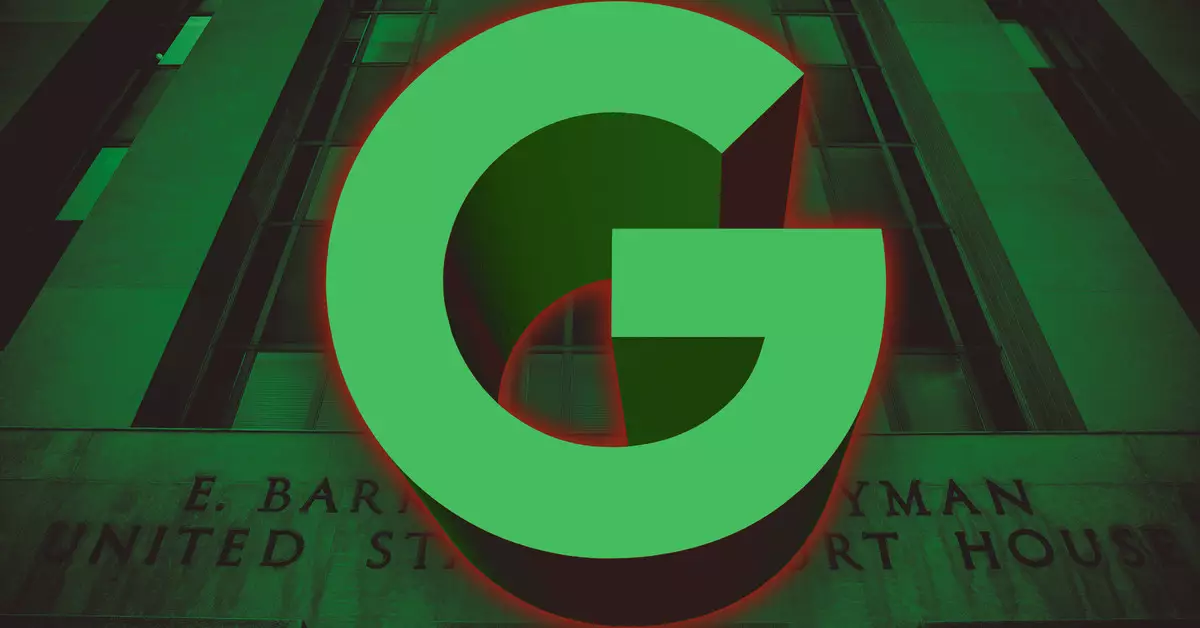In recent developments, the antitrust case against Google has taken a significant turn as the Department of Justice (DOJ) has laid out strategies to address what it claims are illegal monopolistic practices in the tech sector. The urgency of this case cannot be overstated, as it holds the potential to reshape the landscape of digital competition. Google’s rebuttal to the DOJ’s assertions presents a complex picture of corporate maneuvering and regulatory scrutiny.
The DOJ’s argument centers around the assertion that Google has effectively maintained its dominance in the search engine market through unfair practices. The agency’s list of proposed remedies begins with the radical step of forcing Google to divest its Chrome browser—a move aimed at breaking its tight grip on various internet services. Such a split could pave the way for competitors to emerge, fostering a more vibrant marketplace. However, the breadth of the DOJ’s recommendations raises questions about the practical implications for both consumers and the tech ecosystem at large.
In response, Google has laid out its own set of countermeasures. Rather than opting for a divestiture of its assets, such as Chrome or Android, Google’s proposed changes focus on redefining its payment and licensing structures. The company is keen to preserve its lucrative agreements with partners like Apple and Mozilla, where it compensates these firms for prioritizing its services. This proposition, while attempting to address some aspects of monopoly oversight, has been criticized for failing to meaningfully tackle the underlying issues of competition.
Google’s legal representatives assert that their proposals are tailored to comply with the DOJ’s focus on search distribution contracts. By suggesting changes that would prohibit entering deals that link Chrome and Search licenses with the pre-installation of other applications, Google aims to create a semblance of fair play. However, the effectiveness of these measures remains dubious, particularly as they skirt around the DOJ’s concern regarding the sharing of Google’s vast repository of search data. This omission may indicate that Google’s response is more about protecting its interests than fostering true competition.
As the case heads for a trial set for April, where Google’s revised proposals will be scrutinized, the anticipation looms around how regulators and the judicial system will navigate these intricate legal waters. Google has stated its intent to appeal Judge Amit Mehta’s strong language labeling the company a monopolist. This appeal will not only be a critical moment for Google but also for the precedent it sets in the tech industry as a whole.
The outcome of this case could either reinforce Google’s existing dominance or pave the way for a more competitive environment in the digital space. As the tech landscape evolves rapidly, it remains essential for regulatory bodies to strike a balance between encouraging innovation and preventing anti-competitive behavior. In this high-stakes situation, the future of not only Google but also the tech world hangs in the balance.

